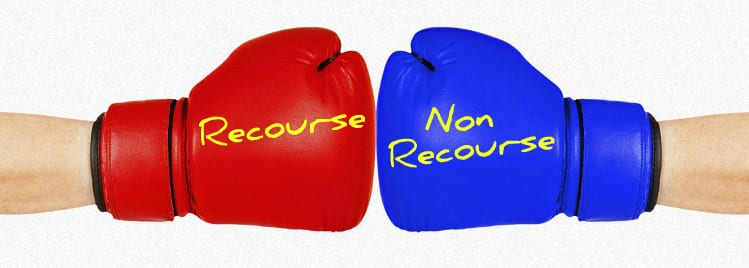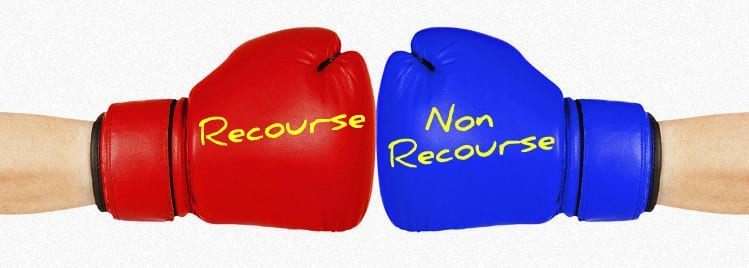Recourse Loan vs Non Recourse Loan
There are two types of loans in commercial real estate: recourse and non recourse. The difference between a recourse vs non recourse loan has to do with the collateral the lender can take if you don’t repay a loan.
Recourse Loans
From 2003 to 2008 many commercial real estate borrowers signed recourse loans. Most of them regretted it a few years later. Why? Because a recourse loan favors the lender, because it permits them to pursue legal action even after the collateral has been seized. If you default on a recourse loan, the creditor can bring legal cases against you, garnish your wages, and levy bank accounts in order to collect the amount you owe. Recourse loans are appropriate for debtors with a dependable and steady source of income, as well as adequate liquidity (cash savings and investments easily convertible to cash).
Example: Say you bought a property in 2007 for $2,300,000. At the acquisition you got an interest-only loan from the bank for $2,000,000. A few years later a declining market forced you to give the property back to the bank. The bank sells the property for $1,800,000. Because this is a recourse loan, you still owe the bank $200,000 ($2MM – $1.8MM). In order to make up this deficiency, the bank will pursue any of your personal assets (your house, vacation home, boat, children, & pets).
Non Recourse Loans
Non-recourse loans favor the borrower, because it guarantees the debtor only loses their collateral. With a non-recourse loan, the lender can only go after the collateral because it prevents the creditor from pursuing personal assets in the event of foreclosure. This can sometimes lead to the creditor experiencing losses, for instance, if the assets have depreciated.
Example: So let’s say you got a non-recourse loan in the example above. Once you gave back the property to the lender then you would not be pursued anymore. Sure you would be out $300,000 in equity ($2.3MM – $2MM) but it’s better than having the lender go after your personal assets for the remaining loan balance.
The Recourse Summary
So which one should you go with? Well as always, it depends. All things being equal, a recourse loan will generally have a lower interest rate. So if signing a personal guarantee is not a concern, then recourse is the better option. If you are looking to protect your personal assets then a non-recourse loan is the better way to go. For more info on non recourse loans, checkout our other blog post – Non-Recourse Loans: More Information You Need to Know.
Helpful Resources on Recourse & Non-Recourse Loans:
CRE Information…Investopedia…Wikipedia…Fredlaw…Nolo…NEI Online…RE Journals…MuchShelist





















